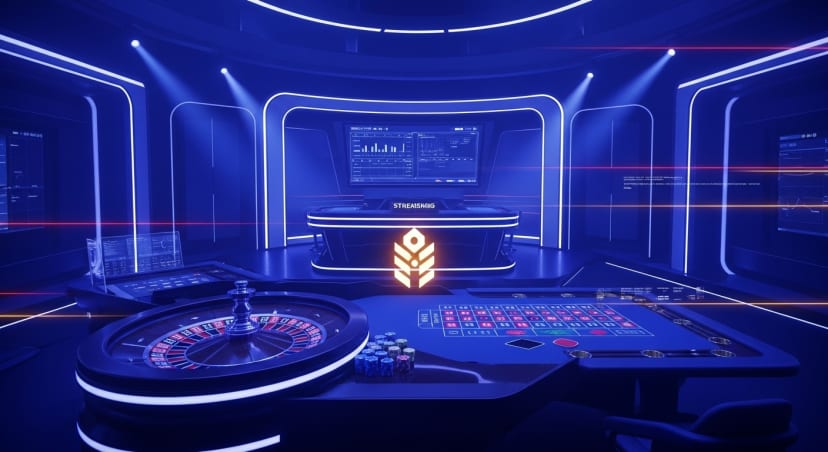Live Wheel Games vs Crypto Wheel: What’s the Difference?

The online gambling scene in South Africa has really kicked off, bringing fresh ways to enjoy classic casino thrills. When it comes to wheel-based games, things have now spun into two main camps: live-hosted wheel shows and games powered by crypto. Both give you that exciting wheel-spinning action, but they work quite differently when it comes to how they're run, proving they're fair, and keeping you hooked.
Fairness on the Spin: Live vs Crypto Wheels Explained – For South African Players
Live Wheel Games:
In South Africa, live wheels use licensed Random Number Generators (RNGs), giving you peace of mind knowing they're tested and approved by recognised gambling authorities. These authorities, along with regular checks on the physical wheel and all the digital bits, ensure everything is above board.
Crypto Wheel Games:
Crypto wheels, on the other hand, use 'provably fair' tech. This means you can check every spin's result yourself using blockchain hashing. You're in control of verifying the fairness, so you don't need to rely on traditional licensing alone.
Fairness Compared Side-by-Side:
Entertainment Value: Immersive Wheel Game Shows vs Instant-Play Autonomy
Live wheel games excel in creating entertainment value through:
- Dynamic host personalities
- Interactive chat features
- Studio atmosphere
- Multiplayer excitement
- Real-time reactions and celebrations
Crypto wheels focus on different entertainment aspects:
- Rapid gameplay
- Clean, efficient interfaces
- Immediate results
- Personal control
- Minimal distractions
The entertainment divide reflects different player preferences: those seeking social, immersive experiences versus players prioritizing speed and autonomy.
💡 Tip: Learn the basics of how to play live wheel games before choosing a wheel game type!
Payout Logic: Segment-Based Volatility vs Algorithmic Multipliers
Understanding "segment-based volatility" is crucial for live wheels, where physical segments on the wheel display fixed multipliers. Players can see potential payouts, creating tangible anticipation as the wheel spins toward high-value segments.
Crypto wheels typically employ algorithmic multipliers, where provably fair systems generate payouts through mathematical functions. This creates a different kind of excitement – one based on instant mathematical certainty rather than physical wheel momentum.
Bridging the Gap: Hybrid Models and Future Trends
The industry is witnessing an interesting convergence between these formats. Some live wheel providers now implement blockchain verification systems, while certain crypto platforms add live host elements to their instant games. This hybrid approach suggests a future where the best elements of both formats combine.
Emerging trends include:
- Blockchain-verified live games
- Social features in crypto wheels
- Cross-platform compatibility
- Integrated cryptocurrency payments in traditional games
- Enhanced mobile optimization for both formats
Choosing Between Live and Crypto Wheels
Your choice between live and crypto wheels should depend on your priorities and your chosen strategies for wheel games:
Choose Live Wheels if you value:
- Social interaction
- Host-driven entertainment
- Traditional casino atmosphere
- Scheduled gaming sessions
- Regulated environments
Choose Crypto Wheels if you prefer:
- Instant play
- Complete control
- Mathematical verification
- Rapid gameplay
- Cryptocurrency integration
Conclusion: Which Wheel Game Type is Best?
Both formats offer legitimate, entertaining gaming experiences – they simply cater to different player preferences and priorities. As the industry continues to evolve, we'll likely see further innovation in both categories, potentially leading to even more sophisticated hybrid models that combine the best of both worlds.
The future of wheel-based games looks bright, with technology and entertainment continuing to merge in exciting new ways. Whether you prefer the social buzz of live wheels or the autonomous efficiency of crypto wheels, there's never been a more diverse range of options for wheel game enthusiasts.
FAQ
What's the key difference between live wheel games and crypto wheel games in South Africa?
Live wheel games feature real dealers in real-time, offering a social and interactive experience. Crypto wheel games are often automated or blockchain-based, providing faster gameplay and provable fairness, but less live interaction.
Are crypto wheel games safer than live wheel games for South African players?
Crypto wheel games often use provably fair algorithms, allowing players to verify the fairness of each spin. Live wheel games rely on licensed casinos and regulated live dealers for security and transparency, ensuring fair play.
Can I use ZAR (South African Rand) in crypto wheel games?
No, crypto wheel games require digital currencies like Bitcoin or Ethereum. Live wheel games usually accept standard fiat currencies, including ZAR, although some live casinos are starting to include crypto options.
Which offers better payouts: live or crypto wheel games in South Africa?
Crypto wheel games may offer lower house edges or exclusive bonuses. Live wheel games often feature multipliers and engaging bonus rounds that can lead to larger potential payouts, adding excitement to the game.
Is the gameplay experience different between live and crypto wheel games?
Yes. Live wheel games provide immersive, real-time streaming with hosts, while crypto wheel games focus on speed, automation, and verifiable results, often with simpler interfaces for quick betting.
Are bonuses different in live and crypto wheel games for South African players?
Crypto casinos tend to offer generous deposit bonuses and rewards for using digital currencies. Live casinos often provide loyalty rewards and game-specific promotions, such as bonus spins or cashback offers.

















